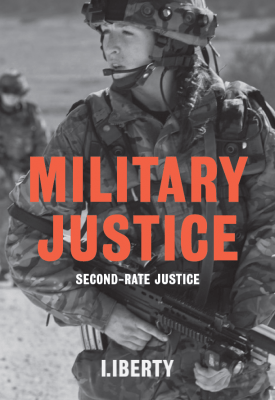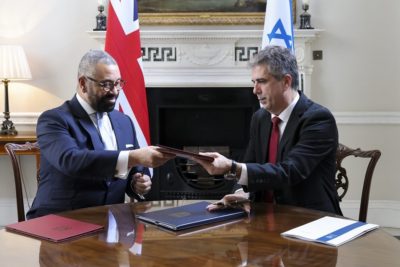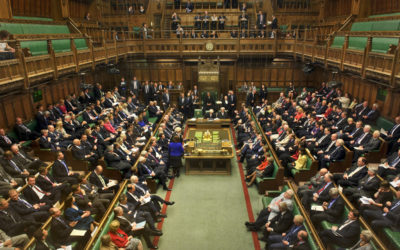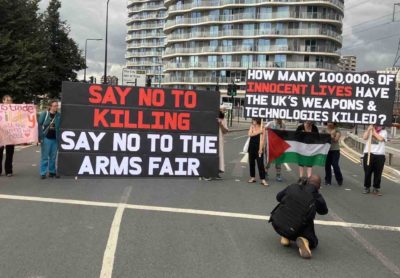Historical allegations: fact vs fiction

A key debate to emerge from the wars in Afghanistan and Iraq surrounds so-called ‘historical allegations’, or litigation involving different degrees of abuse and in some cases killing, by UK troops, of civilians in those countries.
These historical allegations cases are highly complex. Understanding them has been hindered by hyperbolic press coverage and the intentional weaponisation of the issue by some parties for ideological and political gain, including to pin back vital human rights laws.
Liberty’s recent ‘Military Justice: Second-Rate Justice’ provides much needed clarity to this emotive and often misunderstood topic. It argues powerfully that far from being driven by a concern for soldiers, attempts by the Government to leave human rights treaties are self-serving and will very likely harm both victims of war and soldiers in the long run.
ForcesWatch decided to take a quick look at some of the key questions around the historical allegations debate.
Are the claims of abuse by UK troops simply ‘made up’?
No. Abuses and killings certainly took place. The scale can be contested but the fact that abuses took place and that UK troops killed civilians can not. Former senior British Army lawyer Lieutenant Colonel Nicholas Mercer branded claims that, for example, the Iraq allegations were spurious as ‘nonsense.’
‘The Ministry of Defence has already paid out £20m in compensation to victims of abuse in Iraq. This is for a total of 326 which by anyone’s reckoning is a lot of money and a shocking amount of abuse,’ Mercer wrote in The Guardian in 2016.
‘Anyone who has been involved in litigation with the MoD knows that it will pay up only if a case is overwhelming or the ministry wants to cover something up.’ he added.
Even in the Al Sweady case, centred on a 2004 battle between UK troops and Iraqi insurgents, and in which all the most serious allegations were rejected by an official inquiry, it was recognised that the Geneva Convention was breached on multiple occasions.
Likewise in the case of Marine A, in which a Royal Marine executed a wounded insurgent on camera while quoting Shakespeare. The murder conviction was later reduced to one of manslaughter on the grounds of diminished responsibility.
The cases which have come to trial may only be the tip of an iceberg. Recent reports suggest there have been a number of cases in which suspected enemy observers were killed. Some of these cases allegedly involved UK troops placing previously captured enemy weapons on bodies in an attempt to justify the killings.
Do the cases originate from ‘ambulance-chasing lawyers’ out to make a quick buck at the expense of British soldiers?
In 2017 Phil Shiner, one of the most high-profile lawyers involved in prosecuting cases against UK troops, was struck off after being found guilty of multiple misconduct charges including dishonesty after a disciplinary hearing at a solicitors disciplinary tribunal.
The case was seized upon in the press and by critics of the historical allegations process as not only a major victory but as evidence that the whole range of investigations were crooked. It was noted, for example, that Shiner paid a middleman in Iraq to find cases to pursue. Critics say this was to find Iraqis willing to bring cases, from which Shiner’s firm, Public Interest lawyers (PIL), could turn a profit.
The image created was of greedy lawyers conniving with Iraqis to fabricate cases which left already war-traumatised veterans and soldiers in legal limbo for years as they waited to be put on trial.
The case of PIL is disturbing on many levels. There is no doubt veterans, serving soldiers and families faced months of anguish waiting to see of there would be trials and convictions. Yet this does nothing to change the fact that a great number of allegations emerged not, as sections of the press have routinely claimed, from Iraqi middlemen or greedy lawyers, but from within the ranks of the British military itself.
As Colonel Mercer pointed out in his critique, no less than three colonels raised concerns over prisoner abuse while in Iraq, adding that many allegations came ‘from serving and former members of the armed forces with no financial interest in the outcome, concerned merely that the government abide by the rule of law.’
Is the Government’s motivation for leaving human rights treaties to protect soldiers and veterans from a ‘legal black hole’, which is being exploited by ‘PC-mad’ lawyers?
No. The UK government, the Ministry of Defence, individual MPs and various commentators have argued that litigation like that which has emerged from Iraq and Afghanistan can be avoided in future by withdrawing from the European Convention on Human Rights.
‘Attacks on the Human Rights Act and deliberate misrepresentations as to what our courts have actually said are not made in the interests of soldiers or their families but rather are in the interests only of the powers that be.’
According to credible legal sources this is simply false and would prove extremely dangerous for the same service personnel whom opponents of human rights legislation are claiming to champion. The new Liberty report rejects the anti-Convention position, arguing that:
‘Despite hyperbole from the MoD and others, the implications of these judgments are measured, limited, reasonable and essentially amount to the propositions: don’t kill unless it’s a lawful act of war, don’t torture and ill-treat civilians or combatants under your control – ever – and enable some minimum procedural standards to ensure people are not held in indefinite extra-judicial detention.’
Liberty slams the efforts in some quarters to skew the debate, pointing instead to a high degree of government self-interest and no small amount of ideological opposition to human rights:
‘Attacks on the Human Rights Act and deliberate misrepresentations as to what our courts have actually said are not made in the interests of soldiers or their families but rather are in the interests only of the powers that be.’
Finally, according to Liberty, the Government’s stated intention of derogating from the convention would, ‘fundamentally undermine such principles and safeguards, would not address the issue that appears to be of principal concern to the Government (namely the ability of civilians and detainees to bring claims founded upon violations of Articles 3 and 2 of the Convention) and would send a terrible message to rights-abusing regimes around the world.’
Continuing Saga
The debate around historical allegations will continue for many years. It is a highly emotive topic in the armed forces and veterans community and elsewhere.
The cases, and the hyperbolic media coverage around them, have led to the rise among some former service personnel of a ‘stab in the back’ conspiracy theory, struck through with a ‘political correctness gone mad’ narrative, which blames weak, overly liberal politicians for ‘betraying’ the troops.
The reality is far more complex but in part it involves a UK government, which has a poor track record on human rights in general, trying to leave a convention which in fact protects military personnel and civilians, for its own aims.
Both the comments of Colonel Mercer and the contents of the new Liberty report are essential reading for anybody attempting to understand this issue.
See more on the Liberty report: Personnel are being failed by the military justice system
See more: human rights, legislation & policy, legal cases
Like what you read?
> Sign up for our newsletter or blog notifications
> Support our work – from just £2 a month










